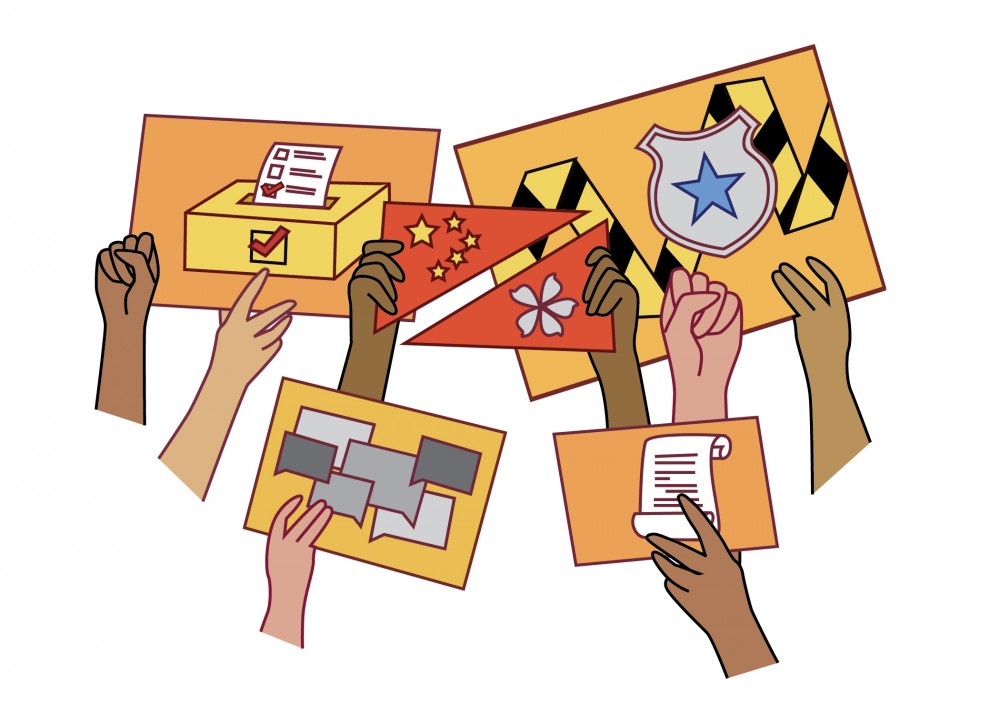University of Minnesota student Stanley Chow participated in a protest toward the end of the summer in his hometown — Hong Kong.
“Everyone was wearing a black shirt, black pants to show the unity of protesters. It was also very peaceful,” Chow said.
Multiple protests have occurred this year in Hong Kong in opposition of an extradition bill, which would have allowed mainland China authorities to extradite suspects for prosecution in Hong Kong. Many Hong Kong citizens worried the bill would subject Hong Kong citizens and visitors to mainland China’s jurisdiction, undermining civil liberties. Earlier this month, the Hong Kong government announced it would withdraw the bill, but many in mainland China and Hong Kong are still in conflict.
With the dispute ongoing since early June, many University international students are still passionate about the issue even though they are more than 7,000 miles away from the heart of the movement.
Like Chow, many University students from Hong Kong support the protests.
“Since we are not in Hong Kong, we really can’t do much to directly support the people in Hong Kong, which makes me feel so bad and useless,” said Hugh Chan, president of the Hong Kong Student Association. “I feel useless because [I] cannot be there with all the protesters fighting for our rights.”
Chan said HKSA is a neutral platform for people with different opinions to support Hong Kong.
Natalie Tang, a fourth-year communication studies student from Hong Kong, expressed her mixed feelings as a student studying abroad.
“It feels like I couldn’t do anything much but caring and showing support in such a long distance,” Tang said, adding that she feels sad whenever she watches the news or browses social media.
Hong Kong was a colony of the United Kingdom from 1842 to 1997, despite a short takeover by Japan in 1941. In 1997, the United Kingdom ended its administration, transferring authority to China.
Olivia Zang, a fourth-year statistics major from mainland China, said she believes some Hong Kong citizens were following the protesting crowd blindly.
“I think some of them didn’t know what is going on and just follow the trend, like protesting on the street,” Zang said. “They might think they were fighting for Hong Kong’s democracy and future development but may not even realize that they may be taken [advantage of] by some groups.”
Darry Zhang, president of the University’s Chinese Student Union and a mainland China citizen, said he thinks Hong Kong is a part of China.
“I am not quite familiar with the details of the Hong Kong protest. However, as a Chinese student group, we absolutely resist activities with the aim to set China apart,” Zhang said.
Sophomore Robin Wang is also from mainland China, but he said he supports the protesters. Wang said he loves his homeland China but felt disappointed about the restriction from the Chinese government.
“What is more frightening than the protest itself is that it creates antagonism between people of Hong Kong and mainland China, and [mainlanders] call young people in Hong Kong ‘waste youth,’” Wang said.
Robert Kudrle, an international trade and investment policy professor at the University’s Humphrey School, said he believes the protests have been tremendously damaging to the Hong Kong economy.
Tang, the fourth-year University student, said she understands these concerns but she may not agree with what the protesters do.
“But I understand what’s the reason behind all these acts,” Tang said.
Tang said she believes the government hasn’t focused on the problems, instead allowing the police to “abuse their power” and give the impression that they are trying to silence voices.
Chow, the fourth-year student who participated in the protest, said what the government has done has greatly decreased his trust in the government.
“We are deeply in doubt of what the government would do to protect our liberty, what the government would do to its own citizens because we see a lot of police just beat people up and the government doesn’t say anything,” Chow said.
Throughout the semester, HKSA will have platforms to let people write a message to those in Hong Kong and also spread awareness throughout Minnesota.







